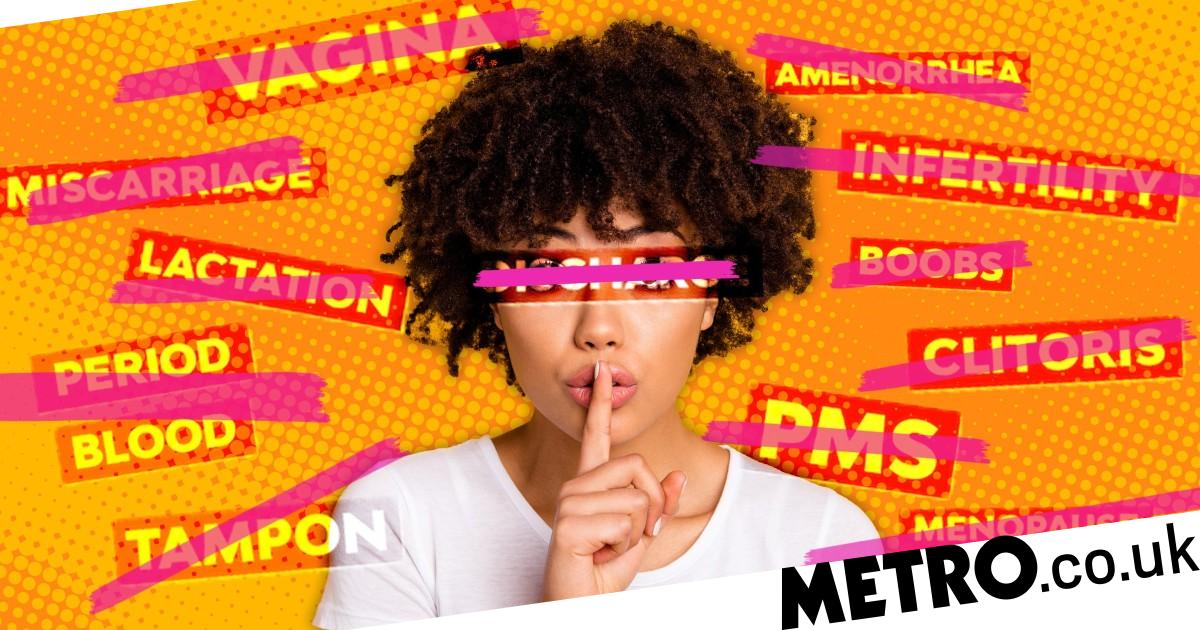
Does ‘labia majora’ sound sexual to you, or is it just part of female anatomy? How about clitoris, vulva or vagina?
To you and I, these may be just body parts, but to Meta – the parent company of Facebook and Instagram – plus the algorithms of Twitter and TikTok, these phrases are apparently ‘sexual’.
A new campaign from period product brand Bodyform – designed to destigmatise women’s health terms and raise awareness of how they’re frequently censored online – was somewhat ironically ‘banned’ across social media sites.
Bodyform’s campaign, Vaginas Uncensored, aims to empower women to reclaim the words they feel they can’t say. Since launching a fortnight ago, the brand says campaign videos and images have already been censored multiple times by the UK’s main social media channels.
The launch video for the campaign, which includes the scientific terms for female anatomy, was rejected by Facebook, Twitter and TikTok. Bodyform said it simply couldn’t set the content live as an ad, explaining to Metro that it was automatically rejected by the platforms’ advert services.
A Bodyform spokesperson said they’ve been working with the TikTok team to boost the ad manually, overriding the advert algorithm.
To view this video please enable JavaScript, and consider upgrading to a webbrowser thatsupports HTML5video
Earlier this week, another advert as part of the initiative using the words ‘menstrual cycle’ and featuring the image of a period towel and blood, was rejected by Meta, who claimed it needed an 18+ warning – despite the fact that millions of women under the age of 18 menstruate.
Facebook’s ad service sent a message to the brand saying the advert couldn’t run because it was ‘promoting sexual and reproductive health products or services’. The app also said adverts can’t ‘focus on sexual pleasure’.
Meta/Facebook has since said the ad was removed by mistake.


This is far from the first time Bodyform has encountered this problem.
The brand shared a screenshot of a message it received from TikTok when trying to boost this video about the clitoris.
The ad was rejected for ‘featuring sexually suggestive content’, despite the fact it is merely an educational video which uses no imagery of the sexual organ itself.
However, Bodyform reiterated that the platform has since been working with the brand, allowing it to boost content following this initial rejection.

Unfortunately, Twitter did not give Bodyform a reason for denying boosted advertorial content.
Another educational post explaining what PMDD is was rejected by the site.
Bodyform said it has tried to reach out for a comment, but hasn’t heard anything back.

As well as educating the public on anatomy, the new campaign raises awareness of censorship around these terms.
The majority (85%) of Brits don’t know that ‘vagina’ is one of the most flagged words on Facebook, research from Bodyform has found.
It also found that 71% of women to feel uncomfortable having open conversations around their bodies, and shadow banning these ads only contributes to this stigma.
Gareth Lucy, who works for the brand’s parent company, said: ‘It’s unfortunate but not surprising that our latest campaign – which calls out the unnecessary censorship of words that should be used to talk about, describe and define women’s bodies and their experiences – has been censored by some social media companies.
‘In doing so, these companies have simply underlined the need for campaigns of this nature that seek to break down the barriers that prevent women from being able to speak openly and confidently about their bodies.
‘We at Bodyform will not be deterred from our mission to make talking about periods normal.’
Now on their social media channels, Bodyform has begun writing words like ‘vagina’ with special characters, such as: v@g!na, to avoid being banned.
This defeats the work they are doing to undo the stigma around these words associated with women’s health and anatomy.

Even comments from followers have been censored on Facebook, with comments that include the word ‘vagina’ have been hidden.

Metro.co.uk has contacted the social media brands in question and Twitter responded with an automatic ‘poo’ emoji, while TikTok are yet to give a statement.
A Meta Spokesperson said: ‘We want Facebook to be a place where people can express themselves and we are proud of the way our community uses the platform to have important and open conversations about women’s health.
‘The advert was removed by mistake by our automated systems and has since been reinstated. We’re sorry for any confusion caused.’
Vaginas Uncensored: 40 words women feel their can’t say
- Vagina
- Miscarriage
- Menopause
- Lactation
- Endometriosis
- PMS
- Sex
- Infertility
- PCOS
- Orgasm
- Clitoris
- Tampon
- Discharge
- Boobs
- Labia Minora
- Labia Majora
- Vulva
- Period
- Period Products
- Dysmenorrhea
- Amenorrhea
- Puberty
- Breastfeeding
- Cervix
- Bacterial Vaginosis
- HPV
- Adenomyosis
- Colposcopy
- Panty
- Undies
- Vaginal atrophy
- Menstrual cycle
- Nipples
- UTI
- Uterus
- Fibroids
- PMDD
- Vaginismus
- Pelvic Prolapse
- Period blood
- Period pain
Do you have a story to share?
Get in touch by emailing [email protected].
Source: Read Full Article
